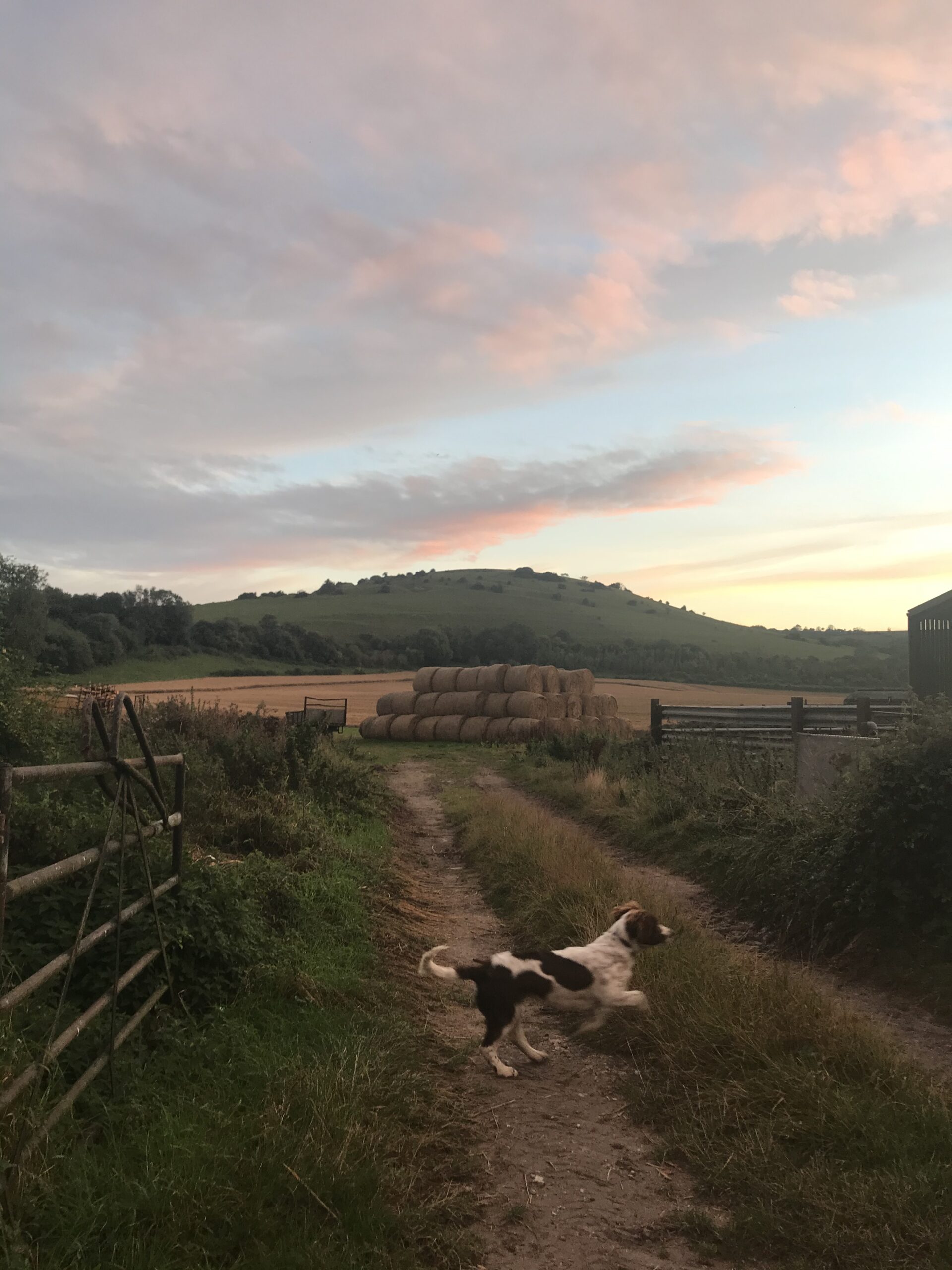An ancient farm steeped in history
Sullington is, at its heart, a family run farm
We have worked with nature for over thirty years with a long-term commitment to restoring nature and to the sustainability of the landscape.
Sullington Manor Farm is a special place with years of history coursing through the core of this ancient farm. There is plenty to explore with miles and miles of bridleways and footpaths – escape into nature!
Grahame, Gail and Anna welcome you to Sullington Manor Farm where they continue to work alongside the landscape, ensuring the importance of wildlife. We have also diversified, over the years, with self-catering holiday cottages, café and wedding venue.
We are very pleased to share the farm with visitors, old and new, and are passionate about developing new ways for people to discover Sullington Manor Farm.
Where our branding comes from
One of the key Roman gods was Woden. He gives his name to Wednesday, which to the Romans was Mercurialis (the Day of Mercury) and in modern romance languages is still called after that god eg “mercredi” in French.
Woden also features in the genealogical lists of the almost all the Anglo-Saxon royal families as an ancestor. This includes Offa, Penda and Alfred. This seems to source from Mercla, during the Mercian supremacy in the 8th century, and may have been adopted in Wessex and Kent at that time.
This design is from a Saxon silver coin, sceat, and depicts the pagan god, Woden. This coin was minted in Wessex in 715AD and then dropped on the farm where it was found, almost 1300 years later.
Coins minted in England and on the Continent during the Anglo-Saxon period. Sceats are diverse in origin and design, and some highly sort after by collectors.
Preserving the past for the future
Sullington is an ‘Olde English’ word meaning ‘farmstead by the muddy pond and willow’. The buildings in this ancient settlement show construction or alteration for every century over the last thousand years.
Over the last 800 years, there has been six owners but lots of tenant farmers.
This means that this settlement is beautifully ‘unimproved’ creating the special appeal and charisma of Sullington Manor Farm that is loved by so many.
Nestled amongst the farm buildings is the ancient church of St Mary’s, Sullington. A beautiful, historic, well-loved church which many choose to marry in before their bespoke wedding reception in the breathtaking Sullington tithe barn, just a short stroll away.
Sullington Church
Sullington tithe barn, 15th century barn
The Old Workshop, 16th century barn
FAMILY & FARMING
Grahame is the third generation of the Kittle family to farm at Sullington. Grahame’s grandfather, Ivan, bought the farm from the Hecks family in 1951. Grahame’s father John and his wife, Susan, converted the original Victorian stables which were previously hen houses to holiday accommodation in 1990. Grahame, a Chartered Surveyor, returned with his family, to work with his father in 1993 and continues to farm at Sullington. Susan, Grahame, Gail and their daughters, Lizzy and Anna, extend an especially warm welcome to all who stay in Byre Cottages.
Sullington Manor Farm is a traditional working beef and arable farm in South Downs National Park, West Sussex and we seek to share its resources for others to enjoy.
Sullington Manor Farm Ltd consists of 7.5 acres of ancient woodland, 142 acres of ancient uncultivated pasture, 75 acres is farmed as wheat, 56 acres of improved pasture and 206 acres of permanent grassland. The mixed farm has 250 grass-fed cattle. Our herd are cross breeds between Sussex, Simmental and Aberdeen Angus. Ours is a closed herd which means that calves are born here and many stay on the farm all their lives.

